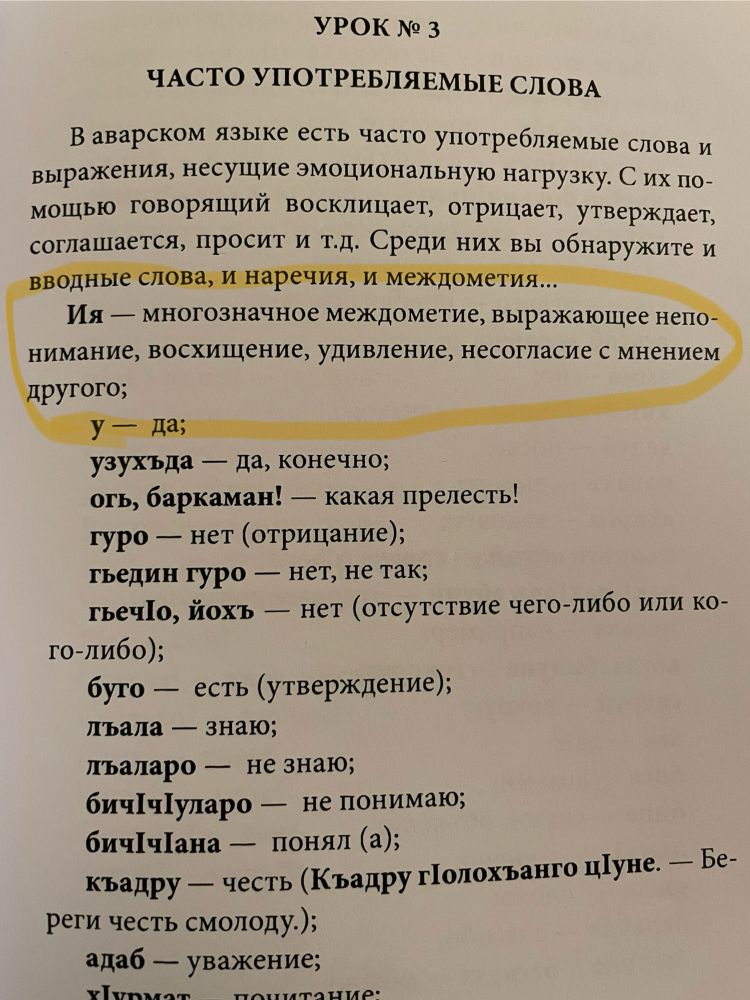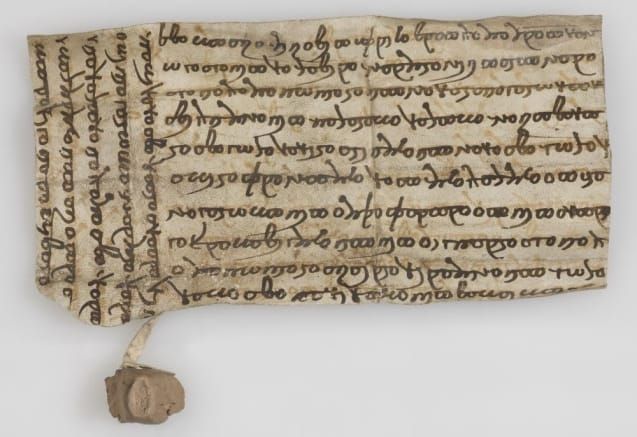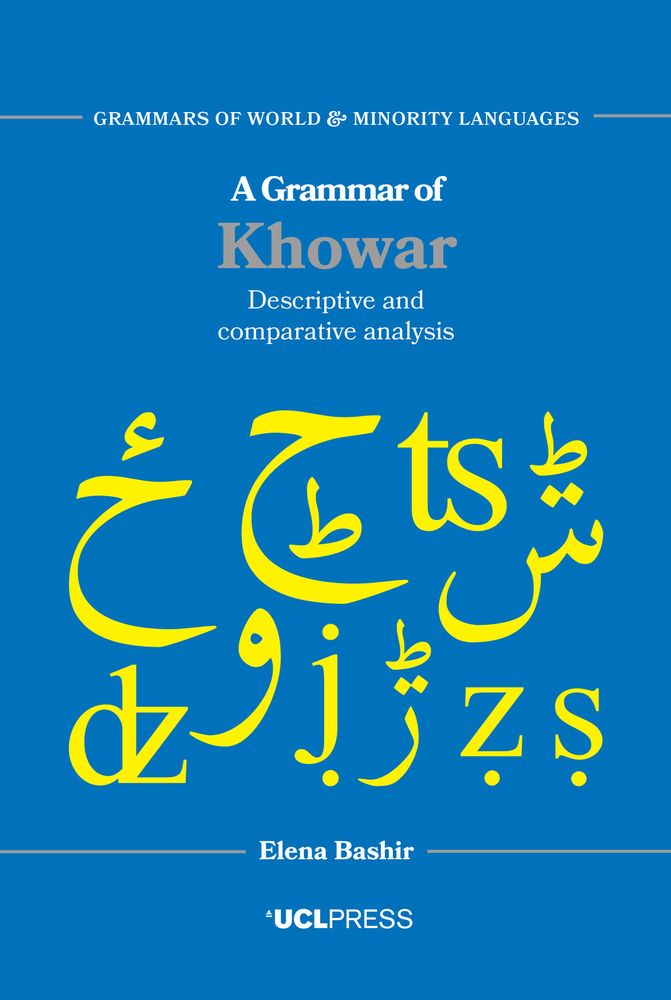An exciting new article from Nicholas Sims-Williams, that proves - in my opinion - that the language of the Issyk-Kushan or "unknown" script is Bactrian after all!
brill.com/view/journal...
06.11.2025 14:44 — 👍 0 🔁 0 💬 0 📌 0
Cognate to Low German place names in -hude, like Buxtehude, Hamburg-Winterhude or Hude near Oldenburg!
29.06.2025 01:38 — 👍 4 🔁 0 💬 0 📌 0
Baloo from The Jungle Book would then be etymologically related to English beaver, Polish bóbr 'beaver' and (a bit more closely) to Persian babr 'tiger'.
05.05.2025 23:30 — 👍 0 🔁 0 💬 0 📌 0
Seems likely to me that Sanskrit bhallū́ka- 'bear' is a Prakritism from an l variant of babhru- 'brown' (babhlu- > bhallu-), which means that Hindi bhālū 'bear' is a direct cognate of Bhadarwahi ḍhḷabbū 'bear' and also of Nuristani Kalasha bröw 'bear' (derived in CDIAL from unlikely *bhrāru-).
05.05.2025 23:30 — 👍 0 🔁 0 💬 1 📌 0
She meant the polite game of insistence and refusal, but the lady understood that she meant poverty/need and was offended. That was liable to misunderstanding for Germans as well, though.
16.04.2025 07:36 — 👍 2 🔁 0 💬 0 📌 0
I know the use as "forcing food etc. upon guests" from my mother (northwestern Germany). Once led to an unfortunate misunderstanding when she told a Polish lady that she knew the "Benötigung" in Poland was greater than in Germany.
16.04.2025 07:36 — 👍 2 🔁 0 💬 1 📌 0

From a book on Avar (Nakh-Daghestanian):
"iya - a polysemous interjection, expressing incomprehension, astonishment, surprise, disagreement with the other's opinion."
I am pretty sure I heard this word in Pakistan and remember being irritated by its ambiguity. Is this a shared Persosphere thing?
14.04.2025 22:04 — 👍 0 🔁 0 💬 0 📌 0

Submitted version

Published version
The book was finally published by John Benjamins after 3 years, though still with some really annoying errors introduced by them (see pictures for one example)
Always glad to sign away my copyright for 3 years of waiting and then a shit product, which also has restricted access.
10.04.2025 10:47 — 👍 0 🔁 0 💬 0 📌 0
The diachronic typology of retroflex vowels
This paper presents the results of a study on the possible diachronic pathways that lead to so-called rhotic or retroflex vowels. Based on a historical-comparative examination of several unrelated are...
A good occasion for my first post on here: My article on the diachronic typology of retroflex/rhotic vowels (incl. some ideas on Khotanese phonology and Proto-Algic reconstruction) is now out in the ICHL25 proceedings.
Not OA, but I can send PDFs to anyone interested
benjamins.com/catalog/cilt...
10.04.2025 10:47 — 👍 0 🔁 0 💬 1 📌 0
Yeah, with original *-d- there are things like xōy < *xauda- and pāy < *pāda-, so I guess the expected reflex of -d- < *-dz- would actually also be -y-?
27.03.2025 14:44 — 👍 2 🔁 0 💬 1 📌 0
Maybe buland 'high' < *br̥dant- and sort of indirectly in Middle Persian an 'I' (for expected ad, maybe adapted to oblique man)
26.03.2025 23:52 — 👍 2 🔁 0 💬 1 📌 0
Yeah, I'll send it to you
11.03.2025 09:14 — 👍 1 🔁 0 💬 0 📌 0
And (a less widely accepted perspective focused more on the external relations):
Tremblay 2005 - "Bildeten die iranischen Sprachen ursprünglich eine genetische Familie oder
einen Sprachbund innerhalb des indo-iranischen Zweiges?" in "Akten der XI. Fachtagung der Indogermanischen Gesellschaft"
10.03.2025 20:43 — 👍 4 🔁 0 💬 2 📌 0
In this case, I followed the request of an author from the speaker community, Samiullah Tāza, who wrote the largest dictionary of the language. His justification is that Waigal is actually just the name of one village, whereas all speakers of the language call themselves Kalasha/Kalashë.
17.02.2025 22:43 — 👍 2 🔁 0 💬 0 📌 0
Beyond Khwarezmian I haven't found any others so far. Maybe one could unify everything under one etymon in some way, but there are some phonological difficulties with the Greek and related terms, which have led people to classify them as "Mediterranean" substrate words
15.02.2025 22:36 — 👍 1 🔁 0 💬 0 📌 0
Yeah, Turner's proposal must be wrong. Some have suggested a relation to Greek γάλα 'milk' but that has other proposed cognates which make the match a bit difficult. Sanskrit jalá- 'water' otoh seems too distant semantically. My latest idea was to connect Khwarezmian ⟨zr(y)k⟩ 'cream, skin on milk'.
15.02.2025 10:49 — 👍 1 🔁 0 💬 1 📌 0
Archaeologist, art historian, epigrapher, author, teacher. Researching the worlds of the ancient Maya and Mesoamerica. MacArthur Fellow, Professor at UT Austin.
The Royal Asiatic Society provides a forum for those who are interested in the history, languages, cultures and religions of Asia to meet and exchange ideas. 14 Stephenson Way, London, NW1 2HD.
https://royalasiaticsociety.org/
Tools for Language Learners | Dallas TX #English #Korean #Spanish #Chinese #German #Portuguese #Japanese #French #Italian
Germany’s finest neon.
A project of @berlintypography.bsky.social
ERC Synergy Grant-funded project on the evolution of suprasegmental morphology in West Nilotic. PIs: Matthew Baerman (U. of Surrey), Bert Remijsen (FU Berlin), Lameen Souag (CNRS). https://nilomorph.eu/
Linguistische Forschung und Lehre an @freieuniversitaet.bsky.social
http://dcl.fu-berlin.de
Posts: @teapotlinguist.bsky.social
Impressum: http://fu-berlin.de/impressum
Indo-Europeanist at Uni Jena; incorrigible Rhinelander; he/him; cats, books, and languages heartily endorsed
Anthropology and archaeology collections from world cultures past and present.
https://www.prm.ox.ac.uk
The Ancient India & Iran Trust is an independent charity in Cambridge, UK, promoting the study of the archaeology, art, religions and languages of early India, Iran & Central Asia
https://www.indiran.org/
Director, NCCR Evolving Language (www.evolvinglanguage.ch) and Professor of General Linguistics at the University of Zürich, Switzerland
Professor of Linguistics, Indo-European Studies, and Classics at UCLA
meine vorstellung von dauer ist provisorisch
Lecturer/researcher in linguistics at the University of Essex
Historian of the late ancient world: Sasanian Iran, the Caucasus, and the Eastern Roman Empire. Professor at William Paterson University. I like cats, photography, and sweet cabbage pierogi.
Bibliographia Iranica is a collective bibliographic blog for Iranian Studies maintained by Shervin Farridnejad, Yazdan Safaee and Arash Zeini (founder).
The official account of the journal Diachronica
Traditional China Chair, U. Zurich, Switzerland
https://aoi.uzh.ch/en/sinologie/persons/professoren/behr.html
Messages represent my personal opinion and are not necessarily endorsements
Professor, Uralic Studies & Linguistic Typology, LMU Munich




